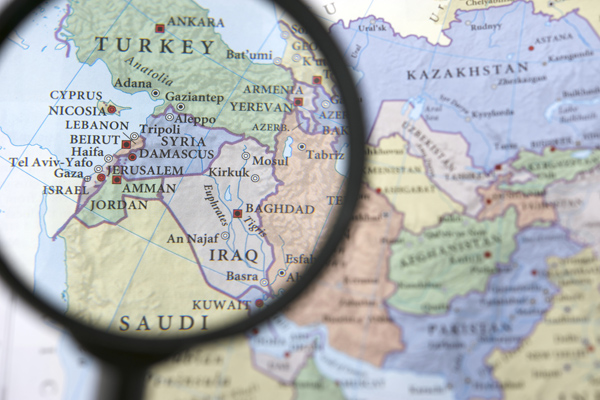3Qs: The implications of an attack on Syria

On Wednesday, the Senate Foreign Relations Committee agreed on a resolution that would authorize a military strike on Syria within 90 days. President Barack Obama is asking Congress to support his plan to attack the Middle Eastern country based on evidence the Syrian government used chemical weapons against its own citizens. Max Abrahms, an assistant professor of public policy in the Department of Political Science and an expert in comparative politics, international relations, and the consequences of terrorism, says congressional approval would be give the president “a rare mandate to pursue his political preferences.”
What could be the global implications if the U.S. takes military action against Syria? What if no military action is taken?
Make no mistake, the conflict in Syria is already a regional crisis with global implications. President Bashar Assad is an Alawite, who draws Shia supporters in his war against the Sunnis. The sectarian divide pits Hezbollah against thousands of foreign Jihadists, including from the al-Nusra Front, an al-Qaida affiliate mainly from Iraq.
Three crucial Sunni states—Saudi Arabia, Turkey, and the United Arab Emirates—have already offered military assets in the event of a U.S. strike, while Iran predictably supports Shia fighters, particularly from the “Party of God.” Russia is also an Assad-backer for strategic reasons, harkening back to the Cold War. Such complex dynamics create high levels of uncertainty.
A U.S. strike, for instance, risks empowering al-Qaida elements. Although Russia would likely remain on the sidelines, Iran may encourage Hezbollah to retaliate by launching rockets into Israel. If no military action is taken, by contrast, Iran may be emboldened to pursue its own weapons of mass destruction development and Sunnis may settle the score in other theaters, like Iraq.
Last week, the British Parliament chose not endorse military action in Syria. What do you make of Obama’s decision to seek Congress’ approval? What are the positives and negatives of taking this route?
Obama’s decision to seek congressional approval for U.S. intervention carries important tradeoffs. If the vote passes, the president will gain a rare mandate to pursue his political preferences. Including congressional opinions may also result in a superior policy. Finally, the decision restores the spirit of the Constitution since the legislative was always designed to be a war-making partner.
The downside is that such congressional deference requires time for deliberation at a moment when Syrians are desperate for assistance. Anti-Assad insurgents have lost confidence in the U.S. ever intervening on their behalf, and Obama’s international supporters in the Arab League, as well as in Europe, have been left in the lurch. Obama says the intervention will strengthen U.S. credibility abroad, but his vacillating has had the opposite effect, particularly among U.S. allies, like Israel, bent on dissuading Iran from going nuclear.
How might the president’s handling of this situation affect his foreign policy legacy?
Obama’s interest in attacking Syria runs counter to his other foreign policy positions in the Muslim world.
Obama won the Democratic nomination from Hillary Clinton largely because of his consistently strong opposition to the Iraq War. He has since ended U.S. involvement in Iraq, while expediting the U.S. withdrawal from Afghanistan. Throughout the Arab Spring, Obama has often tried to avoid taking sides. In Egypt, for instance, he has supported both the Muslim Brotherhood and opponents, depending on the tide.
And he has been quite gun-shy, only supporting the no-fly-zone in Libya once pushed by the French. The situation in Syria is precisely the type of conflict he would be expected to avoid—a sectarian civil war within a failed rogue state.






